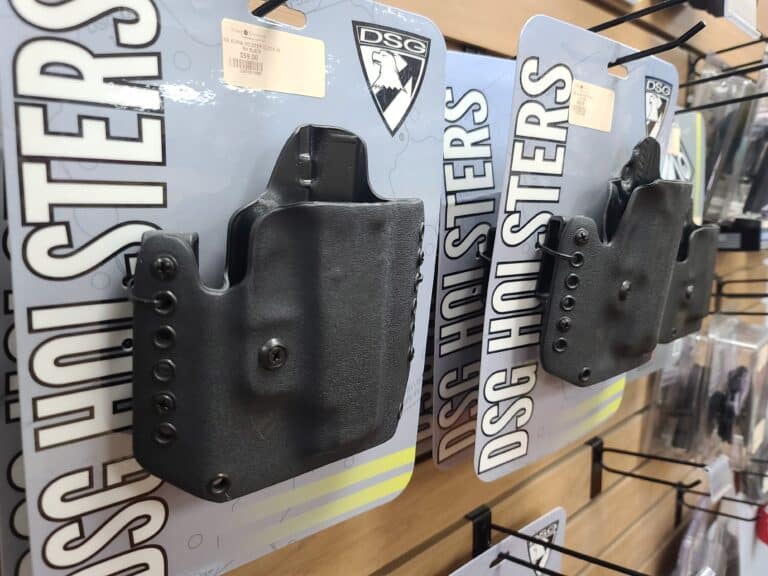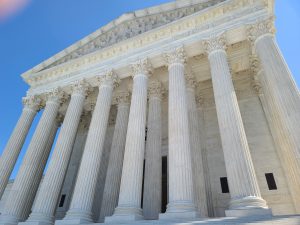Young adults in the Lone Star State may soon be able to carry a firearm for self-defense.
A federal judge on the U.S. District Court for Northern District of Texas ruled on Thursday that a Texas law prohibiting 18-to-20-year-olds from carrying handguns for self-defense was inconsistent with the Second Amendment.
“Based on the Second Amendment’s text, as informed by Founding-Era history and tradition, the Court concludes that the Second Amendment protects against this prohibition,” Judge Mark Pittman wrote in his order. “Texas’s statutory scheme must therefore be enjoined to the extent that law-abiding 18-to-20-year-olds are prohibited from applying for a license to carry a handgun.”
The ruling marks one of the first major federal court decisions to be handed down after the Supreme Court’s landmark decision in New York State Rifle and Pistol Association v. Bruen. The Court in Bruen established a new test for subsequent courts to use when evaluating the legality of gun laws. That test relies on the Second Amendment’s text and the history and tradition of gun regulation near the founding era.
The ruling is another example of a federal court finding special restrictions on the gun rights of adults under 21 are incompatible with the Second Amendment. The Ninth Circuit struck down a ban on the same group owning most semi-automatic rifles, including the popular AR-15, back in May. Last summer, the Fourth Circuit found a federal law that prohibits the sale of handguns to 18-to-20-year-olds is also unconstitutional.
Scrutiny over granting access to firearms to young adults has increased in recent months. Following a string of mass shootings committed by 18-year-olds in places like Buffalo and Uvalde, Congress passed new gun control legislation that includes a special background check process for 18-to-20-year-olds looking to purchase a firearm.
Under the special process, the FBI’s National Instant Criminal Background Check System (NICS) would be required to contact the juvenile criminal record system in the buyer’s state, the state’s mental health record custodian, and “a local law enforcement agency” where the buyer lives to check for disqualifying juvenile records.
But the Bruen decision will likely accelerate that trend because founding-era regulations generally did not single out adults under 21, as Judge Pittman described in his ruling. Drawing on the history of gun carrying near the time of the founding, he noted that young adults participated heavily in the militia.
“At the Founding, the ‘militia’ was generally understood to be comprised of ‘all able-bodied men,’ which included 18-to-20-year-olds,” he wrote. “And because 18-to-20-year-olds were (and are) a part of the militia, the Second Amendment must protect their right to keep and bear arms.”
He also cited the fact that other Constitutional amendments are not generally construed to exclude young adults.
“Thus, because neither the First nor Fourth Amendments exclude—nor have been interpreted to exclude—18-to-20-year-olds, the Court declines to read an implicit age restriction into the Second Amendment,” he wrote.
The Texas law at issue stems from the state’s recent shift to a permitless carry standard. Under the law, all adults aged 21 and older who are not otherwise prohibited from owning a firearm are able to carry it openly or concealed. The law did not extend the right to adults under the age of 21.
The Firearms Policy Coalition (FPC) sued the state over its exclusion of young adults back in November of last year. The group celebrated the legal reasoning used to arrive at the decision.
“Texas cannot point to a single Founding Era law that prohibited 18-to-20-year-olds from carrying a functional firearm for self-defense because not only did no such law exist, but those individuals are an important reason why we have a Bill of Rights in the first place,” Cody Wisniewski, an FPC lawyer, said in a statement. “This decision is a significant victory for the rights of young adults in Texas and demonstrates for the rest of the nation that similar bans cannot withstand constitutional challenges grounded in history, as Bruen and Heller require.”
Judge Pittman delayed his injunction order by 30 days to allow time for Texas state officials to decide if they will appeal the decision.
Representatives with the Texas Department of Safety, the state agency tasked with administering the state’s gun carry laws, did not respond to a request for comment on whether the agency intends to appeal.






